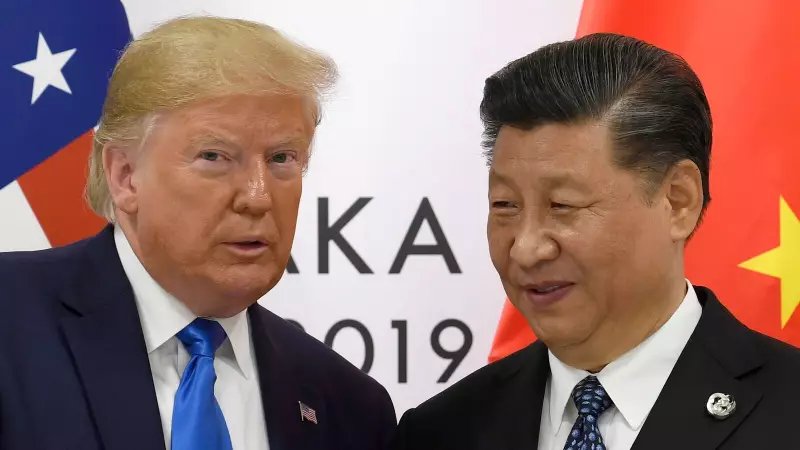
In a dramatic development that could reshape the global technology landscape, former US President Donald Trump is reportedly preparing to make an unprecedented pitch to Chinese leader Xi Jinping involving Nvidia's cutting-edge Blackwell artificial intelligence chips.
The Super-Duper Technology Diplomacy
Trump, known for his unconventional approach to international relations, has coined the term "super-duper" missiles when discussing advanced military technology. Now, this terminology appears to be extending to the commercial AI sector, with the former president positioning himself as a potential dealmaker for one of the world's most sought-after semiconductor technologies.
Nvidia's Blackwell: The Crown Jewel of AI Computing
Nvidia's Blackwell platform represents the next frontier in artificial intelligence processing. These advanced chips are designed to power the most sophisticated AI systems, from large language models to complex scientific simulations. Their potential export to China sits at the heart of ongoing technological tensions between the two superpowers.
The semiconductor industry has become the central battlefield in the US-China tech cold war, with Washington implementing increasingly stringent export controls to prevent Beijing from accessing the most advanced computing technologies.
Navigating the Export Control Maze
Current US regulations have created significant barriers for Chinese companies seeking access to high-performance AI chips. The proposed Trump-Xi discussion about Blackwell processors would need to navigate:
- Existing Commerce Department restrictions on advanced semiconductor exports
- National security concerns about AI technology transfer
- The delicate balance between commercial interests and strategic competition
- Ongoing congressional scrutiny of US-China technology exchanges
The Geopolitical Implications
This potential technology diplomacy comes at a critical juncture in US-China relations. Both nations are racing to establish dominance in artificial intelligence, recognizing its transformative potential for economic and military applications.
The outcome of such discussions could significantly impact:
- Global semiconductor supply chains
- The competitive balance in AI development
- Future technology export policies
- Broader diplomatic relations between Washington and Beijing
Market Reactions and Industry Impact
The semiconductor industry and financial markets are closely watching these developments. Nvidia, as the dominant player in AI chips, faces complex challenges in balancing global market opportunities with compliance to evolving export regulations.
Chinese technology companies, particularly those focused on AI development, have been scrambling to secure alternative supplies and develop domestic capabilities amid the ongoing restrictions.
The potential for high-level political intervention in technology trade represents a significant wild card in an already volatile sector.
Looking Ahead: The Future of Tech Diplomacy
As artificial intelligence continues to advance at a breathtaking pace, the rules governing its global development and deployment remain in flux. High-stakes discussions between world leaders about core technologies like Nvidia's Blackwell chips could set important precedents for how nations manage technological competition and cooperation in the AI era.
The world watches with bated breath as these technological and diplomatic dramas unfold, recognizing that the outcomes will shape the future of global innovation and international power dynamics for decades to come.





